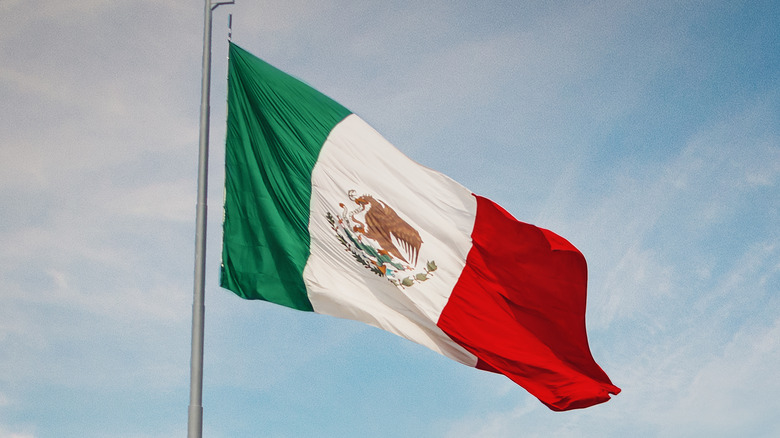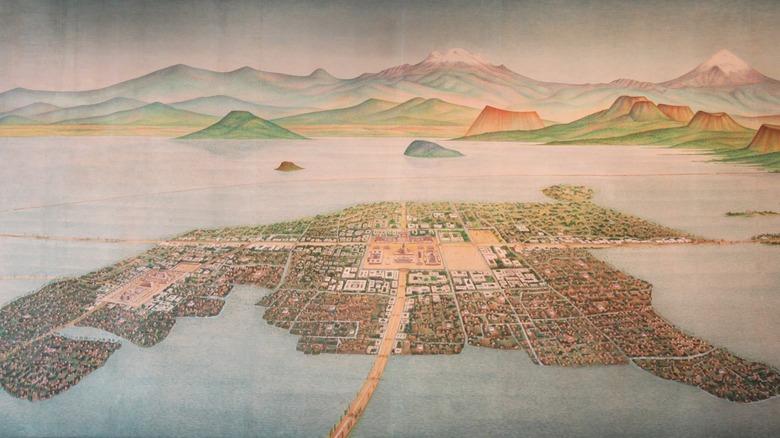This Is How Mexico Got Its Name
There are plenty of country names out there, but it's safe to say that some are more remarkable than others. "Mexico" (accented as "México" in Spanish) is certainly one of the cooler country names. Try saying it out loud; the sharp consonants really give the word some flavor. And an "X" in the name? Only one other country (Luxembourg) has that honor, per World Population Review.
The word Mexico originally comes from Nahuatl, the language spoken by the indigenous people of Mexico. According to linguist William Bright, Nahuatl speakers used the word Mexihco to refer to the heartland of the Aztec empire. (The people who lived there were similarly known as the Mexica, but it's unclear whether the place was named after the people or the people named after the place.) In addition to referring to the central Aztec region as a whole, Mexihco was most strongly associated with Tenochtitlan, the capital city of the Aztecs.
According to at least one theory, as History.com clarifies, Mexihco actually comes from three different Nahuatl words put together: metztli, which means moon; xictli, which means center; and co, which means place. Together, then, Mexihco means "the place in the center of the Moon," which refers to the fact that the Aztecs built their capital city in the middle of the Lake of the Moon.
Mexihco was the Nahuatl term for the center of the Aztec Empire
But how did the Nahuatl term for the Aztec heartland become the name for the entire country of Mexico? Per History, when Hernán Cortés conquered the Aztec capital of Tenochtitlan for the Spanish Empire (razing most of the city in the process), he then re-founded the city. He named it "Mexico City" after the Nahuatl term for the region. Furthermore, under colonial rule, the entirety of modern-day Mexico was known as "New Spain," and Mexico City was its capital.
But, in 1821, the people of so-called "New Spain" issued a Declaration of Independence against (old) Spain. In that document, posted on Declaration Project, the revolutionaries referred to their homeland as the "Mexican Empire" and "Mexican Nation," choosing to name the country after its capital city. (Mexico's Founding Fathers may have been following the naming convention of empires like Rome, where the entire empire is named after its capital city.)
In the following years, Mexico's official name underwent a number of phases: "Imperio Mexicano" (Mexican Empire), "República Mexicana" (Mexican Republic), and, for most of its existence, "Estados Unidos Mexicanos" (United Mexican States). That latter one is Mexico's current name, which may come as a bit of a surprise; you've probably only heard Mexico referred to as "Mexico," and not the "United Mexican States." As CNN reports, Mexican officials have considered changing the country's name to simply "México," dropping the extra words. Not just yet.

